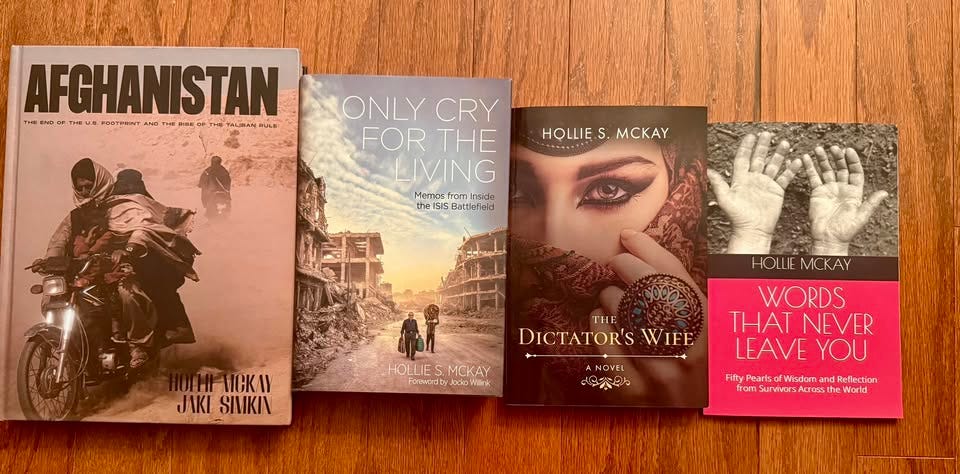I just got back from a work trip in Taiwan. It's always humbling to step into another culture and get the privilege of seeing a place through the eyes of someone who lives there. But this time, it wasn’t just the landscapes or the food or the layers of history that stuck with me. It was a woman I will call Joy. A fixer—journalism's unsung hero—who helped us navigate the language, bureaucracy, interviews, and rhythms of life on the island.
Joy is a single mom. She's spent the last decade working for Voice of America, juggling field assignments with bedtime stories, deadlines with daycare pickups. She was calm under pressure, warm with strangers, meticulous in her planning. You could tell this wasn’t just a gig—it was a calling. She believed in the mission: telling the truth, bringing overlooked stories into the light, representing a country she has never set foot in with a sense of duty and care.
But that mission didn’t protect her.
Earlier this year, Voice of America faced sudden, sweeping budget cuts. Entire programs were shut down overnight. Staff—especially local contractors and freelancers abroad—were let go en masse. Joy lost her job. But what gutted me was this: she is still owed a full month’s pay. This might seem like nothing to some, but in much of the world that lives day by day, the loss is insurmontable. And with the mass layoffs, there’s no one left at VOA to return her calls or emails. She’s just…waiting. For money she already earned. For a country she believed in to do the bare minimum: honor its contract.
She’s not alone. There are hundreds of local reporters, fixers, editors, translators across the world—many of them women, many of them single parents—who have spent years building the infrastructure that allows U.S. media to function abroad. When the budget cuts came, they were discarded like line items. No farewell, no guidance, no compensation. Just silence.
Come on, America. We are better than this.
You cannot ask someone to work for you—risking their safety in some cases, sacrificing time with their families, committing to deadlines and ethics and craft—and then, with a shrug, fail to pay them. It’s not just disgraceful. It’s illegal. And it’s deeply embarrassing. This isn’t just about one woman in Taiwan. It’s about a pattern of how we treat those on the margins of our power structures. Those who do the work but don’t get the credit. Those who aren’t in Washington, but who make Washington's work possible.
This is the very foundation of what we say we stand for: dignity, fairness, accountability.
The betrayal isn’t just personal—it’s geopolitical. When we cut funding to programs like Voice of America or USAID or PEPFAR, we’re not just tightening belts. We’re pulling out the rug from under some of the most effective tools of soft power we’ve ever built. We’re telling the world we don’t care.
Look at the numbers.
In just the first half of this year, global deaths from malaria and HIV/AIDS have surged in regions that were once stable. According to recent data, sub-Saharan Africa has seen a 14% increase in AIDS-related deaths compared to the same period last year. In parts of West Africa and Southeast Asia, malaria deaths are up by nearly 22%. Why? Because U.S.-funded health programs have been frozen, paused, or gutted so quickly that we did not give an opportunity for people to find alternate sources of funding.
The ripple effects are brutal. Clinics are closing. Pregnant women can’t get antiretrovirals. Children go without bed nets. Entire generations of hard-won progress are being rolled back—not because of some strategic pivot, but because of a lack of political will and a failure to remember the faces behind the spreadsheets.
We have to ask ourselves: What is the true cost of cutting these programs? Who are we hurting when we say we need to “tighten” foreign aid? Why is it that the people who suffer most are never in the room when those decisions are made?
Joy’s story is one of thousands. She won’t make a scene. She doesn’t have the resources to demand action. And yet, she still spoke about the work she did with pride.
So this is a plea. Not just to pay Joy what she’s owed—but to reconsider what kind of world we want to build. A world where work is honored, where partnerships mean something, where aid is not just a line item but a reflection of our values.
Because if we’re not willing to stand up for the Joys of the world, we don’t deserve to ask for their help again.
There is often a gray area between right and wrong. This issue is not one of them. If America wants to lead, it has to show up—not just with slogans and press releases, but with integrity.
FOR EXCLUSIVE GLOBAL CONTENT PLEASE CONSIDER A PAID SUBSCRIPTION TO THIS SUBSTACK TO HELP KEEP INDEPENDENT, AGENDA-FREE WRITING AND JOURNALISM ALIVE. THANK YOU SO MUCH FOR YOUR SUPPORT.
For speaking queries please contact meta@metaspeakers.org
For ghostwriting, personalized mentoring or other writing/work-related queries please contact hollie@holliemckay.com
Follow me on Instagram and Twitter for more updates
Click to Purchase All Books Here






Thank you for giving a voice to those behind the spreadsheets who live and work to serve others. I pray for reinstatement of our global initiatives that serve to keep people alive. The next step would be to then help them thrive. It’s one thing to weed out “pork” and pushy ideologies but to throw out the baby with the bath water is inhumane. Aren’t we better than that? So, I agree with your plea 100 percent 💯.
This story is disturbing for so many reasons! Thank you for reporting the way you do, boots on the ground, sharing world news through the eyes of people in other places. I agree that cuts like these are short-sighted and we lose so much credibility and "soft power" as you call it.